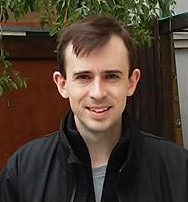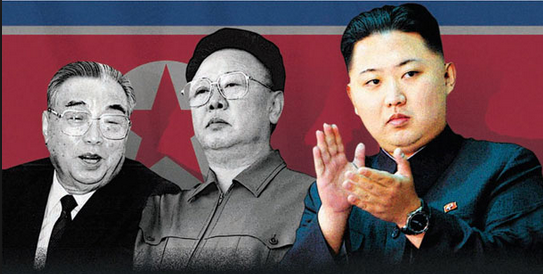Many Christians would be surprised to learn that North Korea – the world’s undisputed top persecutor of its own Christian population – was once the centre of sweeping revivals. Even more surprising to many would be the fact that the ruling Kim dynasty came from a devout Christian family.
What went wrong and how can we pray for North Korea at this time of increasing tensions? Is there hope for the long oppressed people of North Korea?
Watch the Youtube version of this article: https://www.youtube.com/watch?v=nGbYSIej_zA
Pyongyang – the Jerusalem of the East
The city of Pyongyang is today synonymous with the tyrannical nuclear-tipped regime of Kim Jong-Un. However if we were to wind back the clock 100 years, we would see a very different city. After the first Presbyterian mission opened in Pyongyang in 1895, revival movements rapidly brought in many converts. These waves of revival culminated in the ‘Great Pyongyang Revival’ of 1907 which spread out from the city and touched the whole nation of Korea. The fruit of the revival was that by 1910, Pyongyang was the most Christianised area of Korea – boasting over 60’000 Christians in the Presbyterian Church alone! Christian activity was such a prominent feature that postcards from those days featured pictures of Christian street evangelists in action rather than the more traditional postcard pictures of scenic sites.
By the time of the Communist take-over in 1948, there were 2000 churches throughout Korea and they were predominantly located in the North. Pyongyang itself was known as a bustling head-quarter of missionary activity and was affectionately called the ‘Jerusalem of the East’.
The Christian Heritage of the Kim Dynasty
According to the outstanding book ‘Back to the Jerusalem of the East’ by Eugene Bach and Luther Martin, many of the original ruling elite of communist North Korea were in fact from Christian families or received a Christian education.
Even more startling is the fact that Kim Il-Sung – the founder and supreme leader of North Korea who ruled for 46 years – came from a devout Christian family. According to Kim’s official biography, his grandfather was a minister and his parents served as elders in a Presbyterian church. The young Kim grew up in church, and it is even reported that he was an accomplished organist!
What went wrong?
How did Kim Il-Sung turn so radically against the Christian faith of his parents? According to Bach and Martin, the young Kim observed with resentment the high living standards of the western missionaries while the average Korean struggled to put food on the table. The apparent apathy of western missionaries to the Japanese invasion, and their possible ties with the wealthy and oppressive landlords were also issues triggering resentment.
Another pivotal event in Kim’s life was his family’s forced exile in China due to his father being blacklisted by the Japanese authorities. Sadly they were not safe in China either, and one day Japanese soldiers snatched Kim’s father. Local Christians prayed fervently and passionately for his release, but he never returned. No doubt this event would have marked the young Kim and sown seeds in him leading to his complete rejection of Christianity.
Kim later became a rebel leader fighting against the Japanese, and was installed by the Russians as the leader of Korea after the defeat of the Japanese armies.
Pyongyang’s status as the Jerusalem of the East came to a close with the establishment of the ‘Democratic People’s Republic of Korea’ under Kim Il-Sung in 1948 and the subsequent rapid closure and confiscation of church properties.
Kim Il-Sung’s repudiation of his Christian heritage and ruthless persecution of Christianity forms a horrific part of Korea’s history. As his son and now grandson continue in his footsteps, millions of Koreans are suffering from Kim’s fateful decision to turn away from the God of his fathers.
Did Kim Il-Sung entirely forget his Christian heritage?
In Christian circles, bible study groups, worship songs and confession of sins are important in the development of strong committed disciples. Even though Kim turned his back on Christianity, it appears that his regime chose to use surprisingly similar methods to unite the people around their ‘dear leader’. These practices include regular breaks at work to study the writings of Kim Il-Sung in small groups, the singing of songs to the ‘dear leader’ and even the confession of ‘sins’ in weekly confessionals. Perhaps some of these corrupted practices are the secret to the enduring strength of the North Korean dictatorship?
Furthermore, Kim Il-Sung is revered as a god, and his son as ‘the son of god’ – obscenely mirroring Christian theology. Founding father Kim Il Sung is even believed by many to be god in the flesh and the creator of the earth! The words of North Korean blogger ‘Juche girl’ give insight into a Christ-like perception of their leader. She writes ‘Dear Leader can make the handicap walk and the blind to see’. Sounds like a twisted version of a Sunday School song!
While one report suggested that Kim Il-Sung later in life once agreed to pray with a doctor before a major operation, there is sadly no evidence to suggest that he had any real change of heart or returned to the God of his fathers.
Hope for the Future of North Korea
It would seem that there has been a systematic satanic attempt to destroy the Christian heritage of North Korea. Perhaps God has a special destiny for this nation that the enemy has tried to thwart?
According to Open Doors there are today an estimated 300’000 believers in North Korea. This is an extraordinarily high number considering the high price these believers may end up paying for their faith. The calibre of these Christians who are willing to stand in the fire of persecution is to me a great sign of hope for the future of Korea.
I believe there is great hope for a future revival in North Korea – and I base these hopes on the very similar history of the Chinese Church in the lead up to the great revivals in the late 70’s and 80’s. Prior to that time Chairman Mao was practically worshipped as the great saviour of China – and Christians went through vicious persecution to the point of the church being thought to have become extinct. However, as a result of the widespread tumult and havoc wreaked by Mao and also as a result of his death in 1976, millions of Chinese lost faith in their once great leader. This experience and the fall of their great leader produced fertile soil in millions of Chinese hearts for what would become possibly the greatest revival of the 20th Century. This revival was led by ordinary Chinese believers – many of whom had stood firm during the darkest night of persecution.
Could the same happen to North Korea? Could a tumultuous removal of the Kim dynasty lead millions of North Koreans to turn away from worshipping this false god? Like in China, could this revival be headed up by North Korean believers who have been through the purifying fire of persecution? Can Pyongyang once again be the epicentre of a tremendous revival to have an impact even the borders of North Korea? Perhaps this is the reason why the enemy has tried to hold North Korea in the iron-grip of the Kim dynasty for so long.
A Call to Prayer
In these days of escalating tensions on the Korean peninsula, let us remember to pray for the North Korean people. Let us pray for a change in the North Korean leadership and an opening of the borders to the Gospel. May the Christian heritage of the nation be restored and may Pyongyang once again be known as the ‘Jerusalem of the East’!
Sources:
- “Back to the Jerusalem of the East”, by Eugene Bach and Luther Martin
- Jerusalem of the East: The American Christians of Pyongyang, 1895-1942 – Jul 13, 2016, Providence Mag – https://providencemag.com/2016/07/jerusalem-east-american-christians-pyongyang/
- Open Doors USA, “North Korea” – https://www.opendoorsusa.org/christian-persecution/world-watch-list/north-korea/
- Official Biography of Kim Il-Sung, http://www.korea-dpr.com/biography.html
- ‘Kim Il-Sung’, Wikipedia – https://en.wikipedia.org/wiki/Kim_Il-sung

Enoch Lavender was born in Australia, raised in Norway, spent time living in China and is now based in Melbourne, Australia. He has been studying Hebrew and the Jewish roots of our faith for the past decade, and has a keen interest in the Middle East from a Bible prophecy perspective.









0 Comments